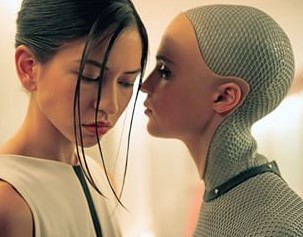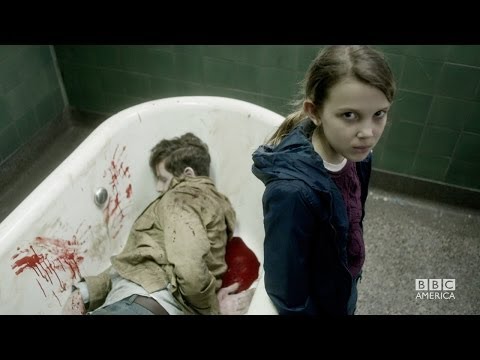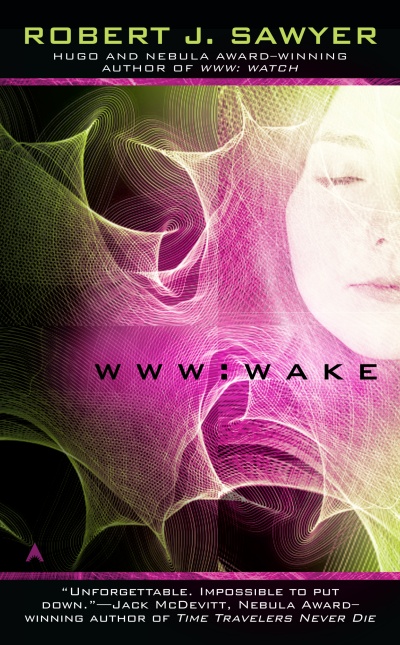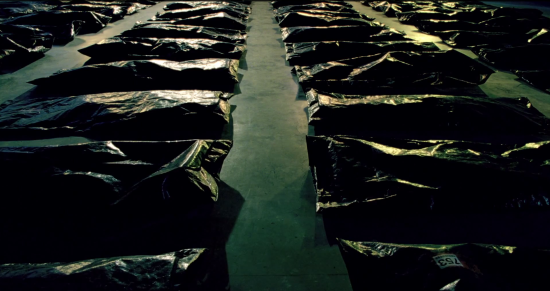5) The boys. Ronnie, Bobby, Ricky and Mike … er, sorry, that’s Mike, Dustin, Lucas and Will take us 80s children back to Goonies or Stand By Me, in that they have the dumb, goofy kid way of relating to each other. It doesn’t seem scripted or forced, just your average four junior high kids who don’t quite get girls yet and are far more interested in the next weekend’s D&D campaign than the school dance. The teen boys and twin love interests of Mike’s sister Nancy – played by Charlie Heeton and Joe Keery – also each bring something interesting to the proceedings after coming off as the stereotypical outsider and jealous boyfriend in the early going. Terrific casting.
4) The girls. Millie Bobby Brown plays a weird, creepy girl who is more than she appears. She’s had practice: She was also a weird, creepy girl who was more than she appeared in the BBC science fiction drama Intruders from 2014. However, this is a different kind of creepy. Her Stranger Things character, Eleven or “Elle” as the boys take to calling her, is a lost puppy with great powers who doesn’t quite understand how she fits into the world, whereas her Intruders character, Madison, was far more menacing and violent. Either way, Brown kicks ass. Natalia Dyer brings some depth to Mike’s teen sister Nancy, and really brings it when the shit hits the fan. And I’m tossing Winona Ryder in here, too, although calling her a “girl” might seem a little demeaning for someone who is a year older than I am. I don’t think I’d seen Ryder in anything since Black Swan, and she still has an amazing screen presence. Her role as the mom of a lost child could have easily succumbed to silly melodrama in some over-the-top manner by a lesser actress, but Ryder keeps it grounded in a situation where that’s not as easy as it sounds. Hope to see her hauling in a best supporting actress Emmy next year.
3) The music. The soundtrack is great, full of 1980s hits and re-workings – such as a Peter Gabriel’s cover of David Bowie’s Heroes – that really help set the scene. You’ll never listen to The Clash’s Should I Stay or Should I Go? the same way again. The score by Survive is another thing entirely, frequently reminding me of classic horror of the era, particularly – but not limited to – Halloween. The story and the acting are both great, but the music is like sweet, creamy icing on top of the best cake you’ve ever eaten.
2) The 1980s. No cell phones, no Twitter, no Facebook, no online gaming. It helps build the tension when you can’t reach out to everyone all at once. The over-sized walkie talkies were a great choice, both for believability and the visual, showing just how far tech has come in 30 or so years. The hair and the fashion, as well as the design of the automobiles … it’s like watching news footage from some suburban documentary in 1983 or something. It’s akin to what’s done on FX’s The Americans, the level of detail used to properly set the scene.
1) The end. As we were watching the show come to a close, my daughter asked, “Is this going to be the only season?” I mused that maybe it was going to be more of a single-season anthology show, like American Horror Story. But then two things happen, and suddenly there’s potential for so much more ahead with the same gang from Hawkins, Indiana, that we’re now so invested in. Well played.




